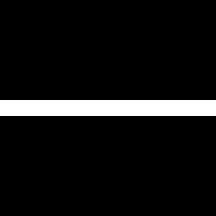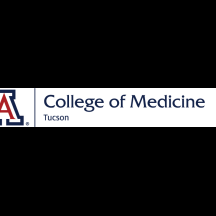Improving the Medical Student Experience
The College of Medicine – Tucson strives to provide a positive and effective learning environment for all our students. Below are some of the ways we are improving the medical student experience, including ensuring that our educational spaces are up to par and that our curriculum is coordinated and effective.

Educational Spaces at Affiliate Sites
We understand the importance of providing students with access to educational resources. That's why we've taken steps at the VA and Banner North to ensure that these affiliate sites have the necessary resources and systems in place to welcome and orient students to their clinical facility and work processes. This includes access to personal storage, laptops, and electronic health records. We've also made sure that students have the support they need to complete their credentialing paperwork.
As of September 11, 2023, medical students at BUMC Tucson have access to a new study area (Room 5642) with seating, lockers for 15 students, and a refrigerator. This is in addition to the team rooms on each floor and multiple lockers located on the first and sixth floors of the hospital.
Parking at the UArizona
We know that parking can be a concern due to limited availability and inconvenience. That's why we've worked to address on-campus parking issues and provide our students with improved parking options, including increased availability of parking permits and after-hours and overnight parking in the Banner garage for clerkship students.
Learning Environment
We have updated the Professionalism webpage to include a Professionalism Report Workflow that describes the process and procedures of the Professionalism Program Committee in handling reports of lapses in professionalism and exemplary professionalism in the learning environment. This includes an integrated rating system for unprofessionalism/student mistreatment reports, ranging from Level 1 (Awareness) to Level 5 (Comprehensive Institutional Action). The document’s purpose is to ensure transparency, accountability, and fairness in handling professionalism issues in the learning environment.
We recently updated the Professionalism Data dashboard, also on the Professionalism webpage, to show reports collected via the conduct comment form between April and September 2023. We are planning further updates to the dashboard to show actions taken and provide additional information on reports.
Curriculum Coordination
We understand that curriculum coordination is important for ensuring that our students receive a well-rounded education. That's why we've developed workgroups to address and improve the workflow for directors to coordinate across the Preclerkship and Clerkship Phases. Our workgroups are focused on ensuring clinical relevance in basic science instruction, improving the college’s review of course evaluations, and facilitating responsiveness to student feedback. We've also hired Dr. Josie Acuña, assistant dean for clinical competency, to facilitate this coordination.
We've implemented a block planning timeline/process to ensure meetings among the block directors with discipline directors and Pathways in Health and Medicine (PHM) thread directors. Jennifer Yelich, program manager for preclinical education, has been assigned as the administrative backbone to support the discipline directors. The Accreditation & Analytics Office will supply the discipline directors with student satisfaction data and Step 1 outcome data. The Office of Curricular Affairs will provide the discipline directors with the block schedules, clerkship schedules, and respective syllabi to enable the discipline directors to conduct their audit and analysis for gaps, unnecessary redundancy, and opportunities for more coordination and bringing in more clinical relevance to basic science content. The discipline directors will also preview how students will use the material for their clerkships. We've also made sure that our block coordinators are updating the tagging of instructional sessions in MedLearn with the appropriate discipline and/or thread and hot topics.
The Tucson Educational Policy Committee (TEPC) chair and co-chair (Drs. Dale Woolridge and Cori Daines), in partnership with the curriculum manager, Michelle Schickling, are revising the overall Education Program Objectives (EPOs) that guide curriculum design and context coordination and improvement. We believe that these efforts will ensure that our curriculum is up-to-date, coordinated, and effective for all of our students.
Improving Formative Feedback (WBAs)
We are committed to providing high-quality formative feedback to our students. To achieve this, we have implemented instructional development programming for departments that sponsor a clerkship. This programming includes a series of trainings focused on improving the quality of formative feedback, how to conduct a mid-clerkship feedback session, and how to provide written and verbal narrative feedback. We have also revised the Workplace-Based Assessment (WBA) forms to encourage improved constructive feedback and clarified our practice for supporting growth mindsets in our learners.
Self-Directed Learning
To support self-directed learning in the Preclerkship Phase, we offer explicit instruction early in Foundations and structure to help students refine their inherent skills.

Future Improvements
We are dedicated to making continual improvements to the medical student experience at the College of Medicine - Tucson. Below are some of the future improvements we have planned to enhance our students' educational experience as well as the spaces and facilities they use.
Renovated Student Lounge and Refreshed Study Rooms
We are in the process of renovating the student lounge and refreshing the study rooms on the third floor of the college. This project is based on direct student feedback, and we are continuing to involve our students throughout the planning process to ensure their needs and desires are met.
Refreshed Library with Quiet Zones
The Health Sciences Library (HSL) has improved its quiet zones to ensure students have an environment conducive for studying. The HSL is also continuing its renovations to refresh and modernize the library space. These updates are improving the library experience for all students.
Clerkship Grading Practices
The clerkship directors are launching an intensive review of grading practices to improve grading consistency across all clerkships. Additionally, we've implemented changes to improve formative feedback on the WBAs and clarify their use. Positive comments may be used on Medical Student Performance Evaluations (MSPEs), while constructive feedback is private and used for the student's growth.
At the College of Medicine – Tucson, we are always looking for ways to improve the educational experience of our students. We are excited to implement these future improvements and continue to make strides in supporting our students' growth and success.

